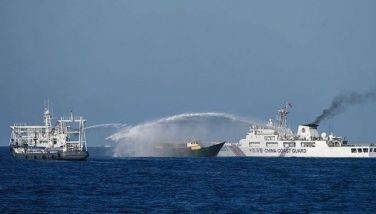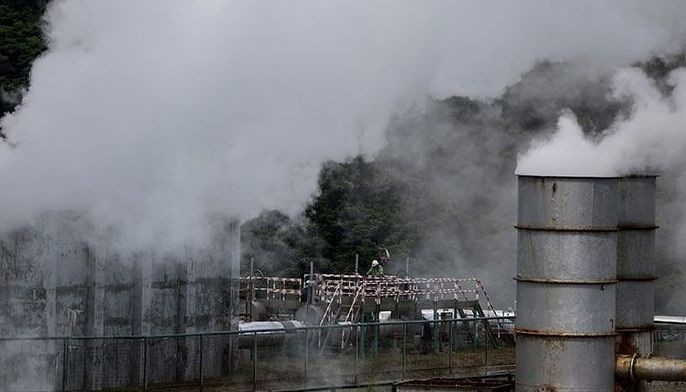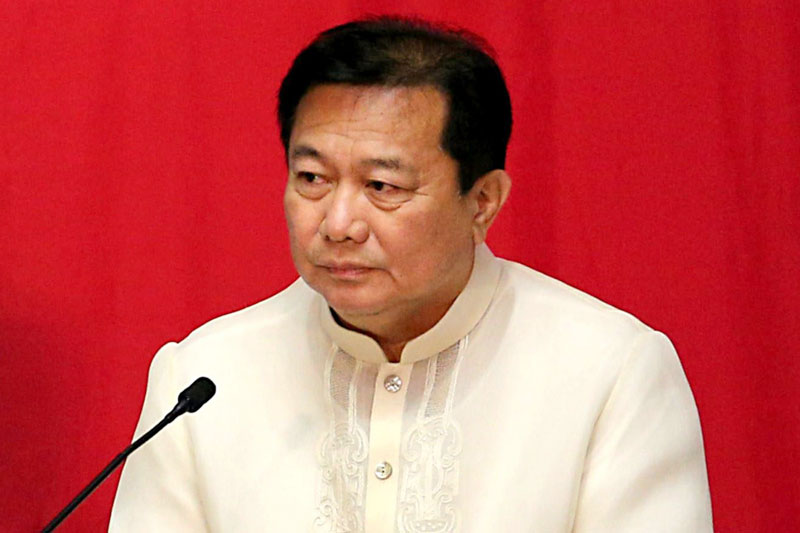Disaster risk reduction must be localized amid reliance on foreign aid — study
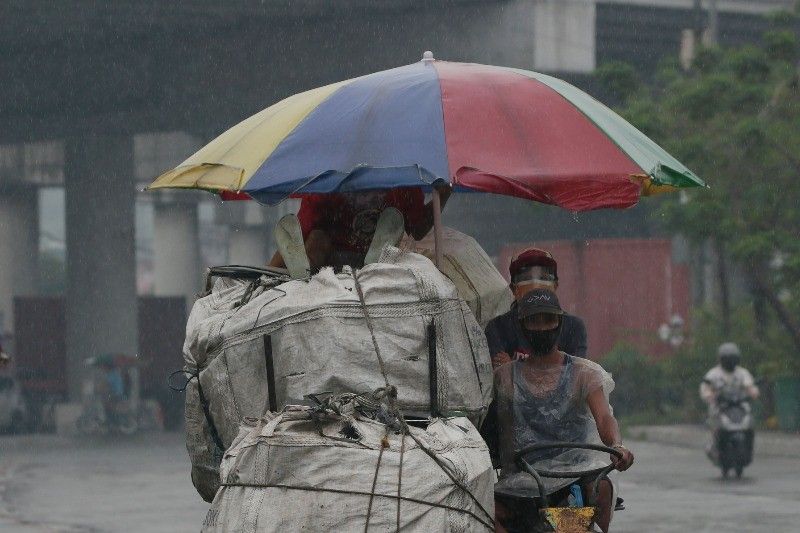
MANILA, Philippines — A certain reliance and, at worst, "preferential attachment" towards international actors is prevalent within the country's disaster risk reduction and climate change adaptation systems, which could lead to underutilized and even unempowered local agencies moving forward, new study findings suggest.
In a study published Thursday entitled "Network Analysis of Actors Working to Support Disaster Preparedness and Resilience in the Philippines," the Harvard Humanitarian Initiative found that it was international entities along with government units who were the top “influencers” or well-connected organizations that spread information quickly across the network.
They were also identified as the top facilitators of interaction between big and small actors in the system, leading to them becoming the target of "preferential attachment."
This, despite "[l]ocal community-based organizations and national non-governmental organizations as well as national and local government units [being] best positioned to respond to disasters," HHI Resilient Communities program director Vincenzo Bollettino said in a statement.
"Our research points to the continued central networked role international aid agencies play in the Philippine disaster system," he also said.
In the wake of Typhoon Quinta (international name: Molave), the government's disaster coordination council estimated the damages to infrastructure and agriculture to be as high as P737.1 million.
In response, the social welfare department, local governments, and civil society organizations have so far provided a collective P1.2 million in assistance across the board to residents of the regions affected.
READ: 'Quinta' leaves 16 dead, 16.8K families in shelters
“Further progress is needed to ensure that local agencies are empowered to respond without international support,” Bollettino also said.
The study involved face-to-face and online surveys conducted from 2017 to 2019 and a network mapping among 501 international and local organizations with disaster and climate-related projects in the Philippines.
Of note, and in the wake of the coronavirus pandemic, the study also found that only "a total of 35 actors reported that they focus on pandemics, accounting for only 7.0% of organizations identified."
Disaster resilience department?
The study also found that the relationship between international actors and sub-national actors—or local organizations who work only within a specific locality or region, such as local governments and community organizers—was initiated from the level of the local organizations and not the other way around.
"[T]his suggests that the flow of information, technical assistance, and resources was top-down," HHI said in its press release.
According to the HHI, out of 387 actors that had relationships with other actors in the network, only 15% or 59 were international actors, but when removing international groups, total relationships between actors dipped by 39%.
But continued reliance on international aid agencies means the Philippines is not realizing its full potential for utilizing local organizations to bolster the country’s disaster risk reduction and climate change adaptation, researchers warned.
"[S]uch behavior can build a dependency on international actors, and can pose threats to the sustainability of the local DRR system," researchers said.
RELATED: House passes bill creating Disaster Resilience Department
In September, the House of Representatives approved on its third and final reading a bill creating the Department of Disaster Resilience. At the time, Rep. Lucy Torres-Gomez (Leyte), principal author of the measure, said that such a department would be necessary to address what she said was the government’s "uncohesive" response to natural disasters and the like.
“We have to recognize that our current system carries with it structural silos that create natural limitations to the disaster risk reduction, response, relief, recovery and rehabilitation processes,” she said then. “Our status quo is functionally fragmented, with various functions under the theme of disaster resilience housed under different departments.
On top of this, the overall responsibility and management for disaster resilience does not fall under one single Cabinet secretary."
The department will also establish regional, provincial, city, municipal and barangay disaster resilience offices following the abolition of the local disaster risk reduction and management offices.
For instance, when Taal Volcano erupted in January 2020, humanitarian non-profits like Save the Children Philippines expressed concern that the fundraisers and donation drives from private entities were almost solely sustaining evacuees but could soon run dry. The group also pointed out that the NDRRMC and other government organizations could potentially be under-reporting the actual number of those displaced.
HHI in an earlier study in 2018 also found that 99.80% of homes across the Philippines "had no disaster management plan specific for volcanic eruption."
READ: 'Heartbreaking' situation for 'under-reported' evacuees — humanitarian group
Some groups doing it solo
Even more troubling is that the HHI also recorded 114 entities who were included and interviewed in the survey process but who reported no relationships with others working on disaster preparedness and resilience in the Philippines. The same 114 organizations were also not identified by other actors as partners. HHI referred to these in its study as "isolates."
Academic institutions accounted for 40% of these so-called isolates, but one telling statistic is that the majority of them were local governments.
"The most common organization type among the isolates is LGUs at 30%. LGUs were also the most common organization type for those who do have connections to others working in disaster preparedness and resilience in the Philippines," HHI found.
"As the Philippines is an island nation, those sub-national organizations working on a small island, may naturally be cut off from the rest of the country [and] some LGUs are so well connected whereas other are not connected at all. Some hypotheses include geographic location, priorities set by the LGU, or budgetary constraints...particularly if they are based in rural areas of the country," it said.
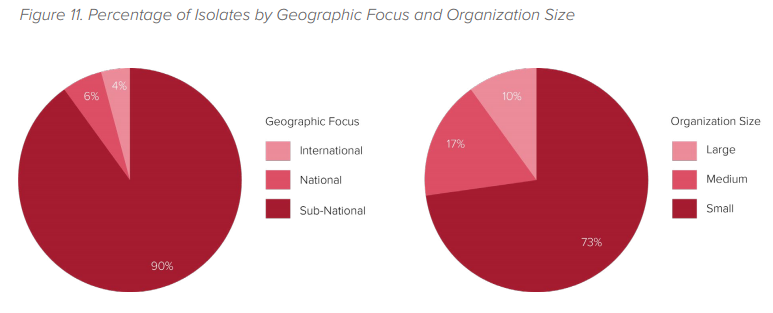
'Localization' needed
Eventually, HHI said, the role of international groups is expected to shift towards a more passive role, instead parceling the role of fostering relationships and connectivity to local leaders. "This process, called 'localization,' puts local actors in the forefront and support them to lead humanitarian efforts," the study reads.
But for the time being, Bollettino says, local groups will have to reckon with this "preferential attachment" and the effects that come with it, such as the numerous "isolates" counted by the study.
“This kind of network behavior demonstrates a weakness in the resilience of the local system and local actors’ ability to maintain coordination and collaboration when international actors withdraw their support,” Bollettino said.
“Eventually, we would want to see more local-to-local ties fostered between sub-national and national actors, government, and other local institutions,” he added. — with a report from The STAR/Edu Punay
- Latest
- Trending


















